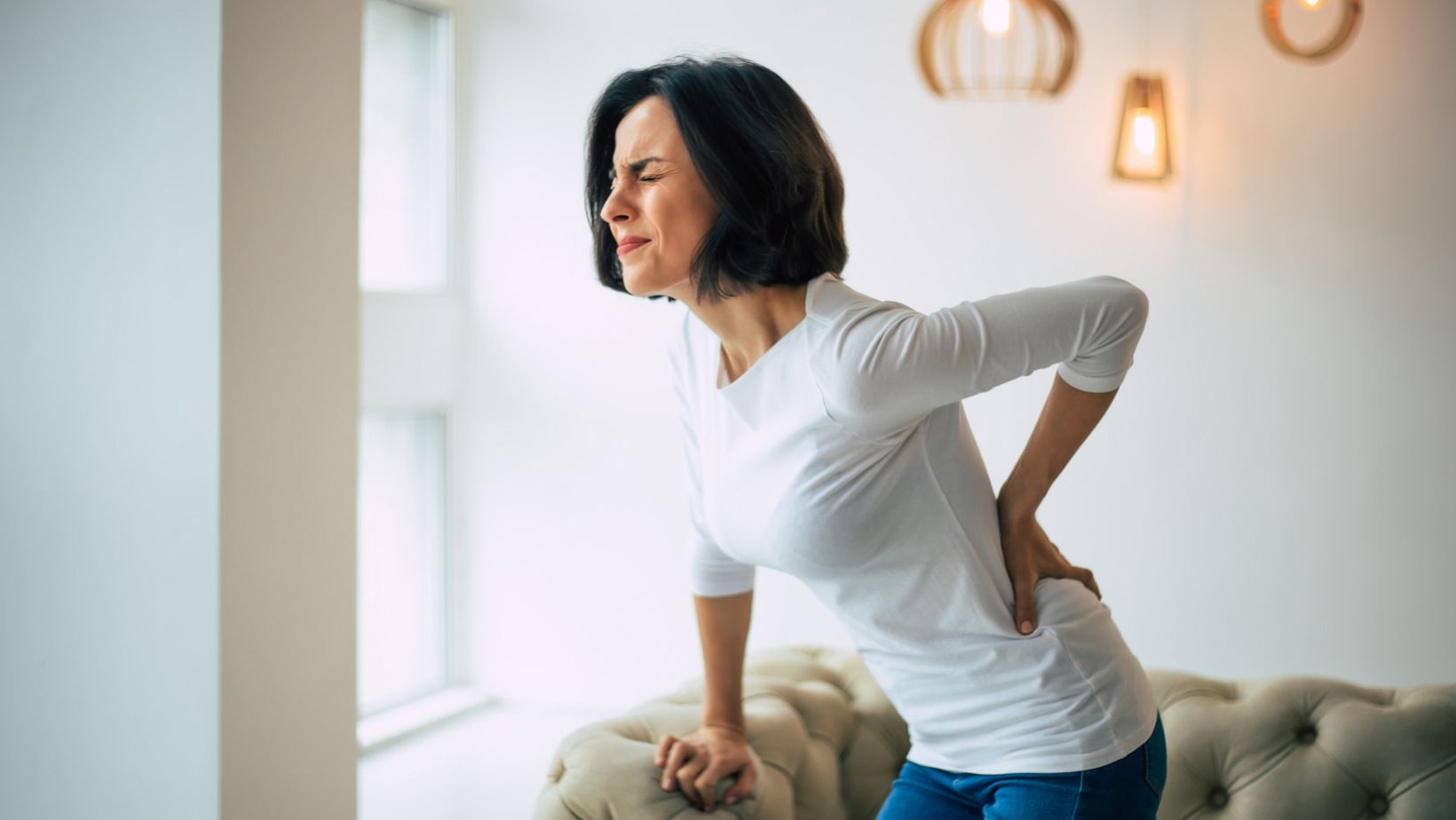Back pain is a common complaint that affects individuals across genders and ages, but women, in particular, often find themselves grappling with this discomfort. While back pain can stem from various sources, understanding why women specifically experience it is crucial for developing targeted solutions. In this article, we delve into the distinctive causes of back pain in women, exploring both physiological and lifestyle factors. By shedding light on these issues, we aim to empower women with the knowledge needed to manage and prevent back pain effectively.
The Biomechanics of Pregnancy
One of the primary reasons women experience back pain is the profound biomechanical changes their bodies undergo during pregnancy. As a woman’s belly expands to accommodate the growing fetus, the center of gravity shifts forward, placing additional stress on the lower back. The hormone relaxin, produced in higher quantities during pregnancy, loosens ligaments in the pelvic area to facilitate childbirth but can also lead to instability in the spine. This combination of factors often results in lower back pain, a prevalent complaint among pregnant women.
Solution:
Pregnancy-specific exercises that focus on strengthening the core and pelvic floor muscles can offer significant relief. Prenatal yoga and swimming, for instance, provide low-impact workouts that enhance flexibility and promote muscle endurance. Additionally, maintaining good posture, using supportive pillows during sleep, and wearing appropriate footwear can help alleviate the strain on the lower back during pregnancy.
Hormonal Influences And Menstrual Cycles
Hormonal fluctuations throughout a woman’s menstrual cycle can contribute to back pain. During menstruation, increased levels of prostaglandins, which regulate muscle contractions in the uterus, can also affect nearby muscles and cause pain in the lower back. Moreover, the drop in estrogen levels that occurs just before menstruation can lead to joint and muscle stiffness, exacerbating the likelihood of back discomfort.
Solution:
Regular exercise, particularly aerobic activities like walking or cycling, can help mitigate the impact of hormonal fluctuations on back pain. Additionally, maintaining a balanced diet rich in anti-inflammatory foods, such as fruits, vegetables, and omega-3 fatty acids, can contribute to overall well-being and reduce the severity of menstrual-related back pain. For more targeted relief, heat therapy in the form of hot packs or warm baths can help relax tense muscles.

The Juggling Act: Work, Family, And Lifestyle
Modern women often find themselves juggling multiple roles, balancing demanding careers, family responsibilities, and social commitments. The resulting stress and lack of time for self-care can take a toll on both physical and mental health, contributing to back pain. Prolonged periods of sitting at desks, lifting and carrying children, or even poor ergonomics at work can strain the back muscles, leading to chronic pain.
Solution:
Prioritizing self-care is essential in managing the demands of a busy lifestyle. Incorporating regular breaks for stretching and movement during the workday can prevent the build-up of tension. Additionally, delegating tasks and seeking support from family members can help distribute responsibilities, reducing the overall stress load. Investing in ergonomic office furniture and practicing good posture while sitting or standing can also contribute to a healthier back in the long run.
Seeking Professional Guidance
While lifestyle adjustments and self-care practices can significantly improve back pain, seeking professional guidance is crucial for comprehensive care. If the discomfort persists or intensifies, women should consider consulting healthcare professionals specializing in back pain management. Whether looking for a Dallas, TX back pain doctor or a specialist in any other location, these professionals can conduct thorough assessments to identify the root cause of the pain. They may recommend personalized treatment plans, which could include physical therapy, pain management techniques, or in some cases, surgical interventions.
Solution:
In addition to at-home strategies, scheduling regular check-ups with a healthcare provider ensures ongoing monitoring and timely intervention. These professionals can offer targeted advice based on individual health profiles, ensuring that women receive the most appropriate care for their specific circumstances. By combining self-care practices with the expertise of healthcare professionals, women can navigate the complexities of back pain and cultivate a proactive approach to their well-being.

Postpartum Recovery Challenges
The journey doesn’t end with childbirth, for many women, it’s only the beginning of a new set of challenges. Postpartum recovery brings its own set of demands on the body, often accompanied by lingering back pain. Caring for a newborn involves frequent bending, lifting, and awkward postures that can strain the back muscles. Moreover, the lack of sleep and physical exhaustion common in the postpartum period can exacerbate the sensation of discomfort.
Solution:
For postpartum women experiencing back pain, targeted exercises focusing on rebuilding core strength can be immensely beneficial. Incorporating gentle activities like postpartum yoga or guided stretching routines can aid in gradually restoring muscle tone. Seeking support from partners, family, or friends for daily tasks can also alleviate the physical strain during this demanding period. Maintaining open communication with healthcare providers about postpartum concerns ensures a holistic approach to recovery.
Embracing Mind-Body Connection
The mind-body connection plays a pivotal role in managing back pain. Stress and emotional well-being directly impact physical health, and women often bear the brunt of societal pressures and expectations. Chronic stress can manifest as tension in the back muscles, contributing to persistent discomfort. Incorporating mindfulness practices, such as meditation or deep-breathing exercises, can help women manage stress levels and, in turn, alleviate back pain.
Solution:
Cultivating mindfulness not only supports mental health but also contributes to physical well-being. Engaging in activities that bring joy and relaxation, such as hobbies or spending quality time with loved ones, can act as a buffer against stress-related back pain. Integrating mindfulness into daily routines, even if briefly, can make a significant difference. Understanding the interconnectedness of mental and physical health empowers women to approach back pain holistically.
In the intricate tapestry of factors contributing to back pain in women, a multi-faceted approach is key. From addressing the biomechanical challenges of pregnancy to navigating the demands of a busy lifestyle, each aspect requires thoughtful consideration. Seeking professional guidance when needed, embracing postpartum recovery strategies, and fostering a strong mind-body connection completes the comprehensive approach. By incorporating these solutions into their lives, women can not only manage but thrive beyond back pain, reclaiming a sense of control over their well-being.





